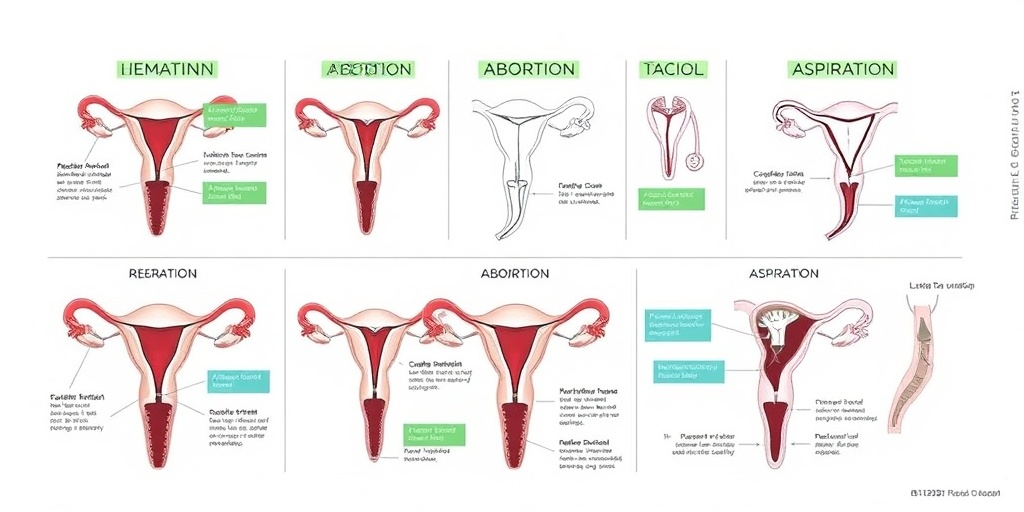What Is Abortion?
Abortion is a medical procedure that terminates a pregnancy. It can be a complex and emotional topic, often surrounded by various opinions, beliefs, and laws. Understanding what abortion entails is crucial for anyone seeking information on the subject. In simple terms, abortion means ending a pregnancy before the fetus can live independently outside the womb.
There are several reasons why individuals may choose to have an abortion. These can range from personal circumstances, health concerns, or socio-economic factors. It’s essential to recognize that the decision to undergo an abortion is deeply personal and can be influenced by various factors, including abortion rights and abortion laws in different regions.
Understanding Abortion Laws
Abortion laws vary significantly across the globe and even within countries. For instance, in the United States, states like Florida have specific regulations that govern the availability and accessibility of abortion services. Understanding these laws is vital for anyone considering an abortion, as they can affect the procedure’s legality, cost, and availability.
In some areas, there are restrictions on when an abortion can be performed, while others may have more lenient regulations. It’s important to stay informed about the current abortion laws in your area, as they can change frequently. Resources like Yesil Health AI can provide up-to-date information on these laws and help individuals navigate their options.
Types of Abortion
There are primarily two types of abortion: medical and surgical. Each type has its own procedures, benefits, and considerations. Understanding these can help individuals make informed decisions about their reproductive health.
Medical Abortion
A medical abortion, often referred to as a medication abortion, involves taking medication to end a pregnancy. This method is typically used in the early stages of pregnancy, usually within the first 10 weeks. The process generally involves two medications:
- Mifepristone: This medication blocks the hormone progesterone, which is necessary for the pregnancy to continue.
- Misoprostol: Taken a few days later, this medication causes the uterus to contract and expel the pregnancy.
Medical abortions can be done at home or in a healthcare setting, depending on the individual’s preference and the guidance of their healthcare provider. It’s essential to follow up with a healthcare professional to ensure the procedure was successful and to address any potential complications.
Surgical Abortion
Surgical abortion is a procedure that involves a healthcare provider removing the pregnancy from the uterus. There are several methods of surgical abortion, including:
- Vacuum Aspiration: This is the most common method, where a suction device is used to remove the pregnancy tissue.
- Dilation and Curettage (D&C): This method involves dilating the cervix and using surgical instruments to remove the pregnancy.
- Dilation and Evacuation (D&E): This is typically performed in the second trimester and involves a combination of suction and surgical instruments.
Surgical abortions are usually performed in a clinic or hospital setting and may require anesthesia. The choice between medical and surgical abortion often depends on how far along the pregnancy is and personal preference.
Cost and Accessibility
The cost of an abortion can vary widely based on the type of procedure, location, and healthcare provider. In some cases, insurance may cover part or all of the costs, while in others, individuals may need to pay out of pocket. It’s important to research abortion clinics in your area and inquire about costs and payment options.
For those seeking an abortion, finding a nearby clinic is crucial. Many individuals search for terms like abortion near me or abortion clinic to locate services. Resources like Yesil Health AI can assist in finding reputable clinics and provide additional information on the procedures involved.
In conclusion, understanding what abortion is and the types available can empower individuals to make informed decisions about their reproductive health. Whether considering a medical or surgical abortion, it’s essential to consult with healthcare professionals and stay informed about the laws and resources available in your area. Remember, you are not alone in this journey, and support is available. 🌼

Abortion Symptoms
Understanding the symptoms associated with abortion is crucial for anyone navigating this complex experience. Whether it’s a medical abortion or a spontaneous miscarriage, recognizing the signs can help individuals seek the appropriate care and support.
Physical Symptoms
Physical symptoms of abortion can vary depending on the stage of pregnancy and the method used. Here are some common physical symptoms:
- Bleeding: One of the most common symptoms is vaginal bleeding, which can range from light spotting to heavy bleeding.
- Cramps: Abdominal cramps are often experienced, similar to menstrual cramps, and can be quite painful.
- Nausea: Some individuals may experience nausea or vomiting, particularly if they are undergoing a medical abortion.
- Fatigue: Feeling unusually tired or fatigued is common during this time.
- Breast Tenderness: Changes in breast sensitivity may occur as hormone levels fluctuate.
Emotional Symptoms
Abortion can also have significant emotional and psychological effects. It’s important to acknowledge these feelings:
- Sadness: Feelings of sadness or grief are common, regardless of the circumstances surrounding the abortion.
- Anxiety: Many individuals experience anxiety about the future, their health, or societal judgment.
- Relief: Some may feel a sense of relief, especially if the pregnancy was unplanned or unwanted.
- Guilt: Feelings of guilt or shame can arise, influenced by personal beliefs or societal pressures.
Recognizing these symptoms is essential for seeking help and support. If you experience severe symptoms or have concerns, it’s important to consult with a healthcare provider or visit an abortion clinic for guidance.
Abortion Causes and Reasons
Understanding the causes and reasons behind abortion is vital for fostering empathy and awareness. Each individual’s situation is unique, and the decision to terminate a pregnancy can stem from various factors.
Medical Reasons
Some individuals may choose abortion due to medical reasons, which can include:
- Health Risks: If the pregnancy poses a risk to the individual’s health or life, abortion may be considered.
- Fetal Abnormalities: Diagnoses of severe fetal abnormalities that may lead to suffering or death can lead to the decision to abort.
Personal and Societal Reasons
Beyond medical reasons, personal circumstances often play a significant role in the decision to have an abortion:
- Unplanned Pregnancy: Many individuals face unplanned pregnancies, leading them to consider abortion as a viable option.
- Financial Constraints: The cost of raising a child can be overwhelming, and financial instability can influence the decision.
- Relationship Issues: Problems within a relationship or lack of support from a partner can lead to the choice of abortion.
- Career and Education: Some individuals may prioritize their career or education and feel that having a child would hinder their goals.
Legal and Societal Influences
Abortion laws vary significantly across different regions, impacting individuals’ access to safe procedures. In places like Florida, recent changes in abortion laws have sparked discussions about reproductive rights. Understanding these laws is crucial for anyone considering an abortion.
In summary, the reasons for abortion are multifaceted and deeply personal. Whether due to medical, personal, or societal factors, it’s essential to approach the topic with compassion and understanding. If you or someone you know is facing this decision, seeking support from healthcare professionals or organizations like Planned Parenthood can provide valuable resources and guidance. 🌼

Abortion Laws and Regulations
Abortion laws vary significantly across different regions and countries, reflecting a complex interplay of cultural, ethical, and political factors. Understanding these laws is crucial for anyone considering an abortion, as they dictate the availability, accessibility, and legality of the procedure.
What is Abortion?
At its core, abortion refers to the medical procedure that terminates a pregnancy. This can be achieved through various methods, including medication (often referred to as the abortion pill) or surgical procedures. The specifics of these methods can be influenced by local laws and regulations.
Types of Abortion Laws
- Legal Restrictions: Many countries impose restrictions on when and how abortions can be performed. For instance, some places allow abortions only within the first trimester, while others may have more lenient laws.
- Parental Consent: In some regions, minors may require parental consent or notification before obtaining an abortion, which can complicate access.
- Waiting Periods: Certain states or countries mandate a waiting period between the initial consultation and the procedure itself, often intended to ensure that individuals have time to consider their decision.
- Mandatory Counseling: Some laws require individuals seeking an abortion to undergo counseling, which may include information about alternatives to abortion.
Abortion Laws in the United States
In the U.S., abortion laws are highly variable and can change rapidly. Following the Supreme Court’s decision in Dobbs v. Jackson Women’s Health Organization, many states have enacted new laws or reverted to pre-existing ones that significantly restrict or ban abortions. For example, states like Florida and South Carolina have implemented laws that limit access to abortion services, while others maintain more liberal policies.
International Perspectives on Abortion Laws
Globally, abortion laws range from highly restrictive to very permissive. In some countries, such as Germany, abortion is allowed under specific circumstances, while others, like the UK, offer broader access. Understanding these differences is essential for individuals considering travel for abortion services.
Abortion Procedures
When it comes to abortion procedures, there are primarily two methods: medical and surgical. Each method has its own set of protocols, benefits, and potential risks.
Medical Abortion
A medical abortion typically involves taking medication to terminate a pregnancy. This method is often preferred for its privacy and non-invasive nature. The process usually involves two main medications:
- Mifepristone: This medication blocks the hormone progesterone, which is necessary for the pregnancy to continue.
- Misoprostol: Taken 24 to 48 hours later, this medication causes the uterus to contract and expel the pregnancy.
Medical abortions are generally effective within the first 10 weeks of pregnancy and can be done at home or in a clinic, depending on local regulations.
Surgical Abortion
Surgical abortion involves a procedure to remove the pregnancy from the uterus. There are several types of surgical abortions, including:
- Vacuum Aspiration: This is the most common method, where a suction device is used to remove the pregnancy tissue.
- Dilation and Curettage (D&C): This method involves dilating the cervix and using surgical instruments to remove the pregnancy.
- Dilation and Evacuation (D&E): Typically performed in the second trimester, this method combines suction and surgical instruments.
Surgical abortions are usually performed in a clinic or hospital setting and may require anesthesia.
Cost of Abortion
The cost of abortion can vary widely based on the method used, the location, and the healthcare provider. In the U.S., the price for a medical abortion can range from $300 to $800, while surgical abortions may cost between $500 and $3,000. Many clinics, including Planned Parenthood, offer sliding scale fees based on income and may provide financial assistance options.
Finding an Abortion Clinic
If you are considering an abortion, finding a reputable abortion clinic is crucial. You can search for clinics near you by using online resources or contacting local health organizations. It’s important to ensure that the clinic is licensed and follows all local regulations to ensure your safety and well-being.
Understanding abortion laws and procedures is essential for making informed decisions. Whether you are exploring options for a medical abortion or seeking information about surgical procedures, being well-informed can empower you to take the next steps confidently. 🌼

Abortion Aftercare
After undergoing an abortion, whether it’s a medical abortion using abortion pills or a surgical procedure at an abortion clinic, proper aftercare is crucial for both physical and emotional recovery. Understanding what to expect and how to care for yourself can make a significant difference in your healing process.
Physical Aftercare
Following an abortion, your body will go through various changes. Here are some essential aftercare tips:
- Rest: Allow your body to recover by getting plenty of rest. Avoid strenuous activities for at least a few days.
- Monitor Symptoms: It’s normal to experience some bleeding and cramping. However, if you notice heavy bleeding (soaking through two pads in an hour), severe pain, or fever, contact your healthcare provider immediately.
- Follow-Up Appointment: Schedule a follow-up visit with your healthcare provider to ensure that your recovery is on track. This is especially important if you used misoprostol or other abortion medicine.
- Hydration and Nutrition: Drink plenty of fluids and eat nutritious foods to help your body heal.
Emotional Aftercare
The emotional impact of an abortion can be profound and varies from person to person. Here are some ways to support your emotional well-being:
- Talk About It: Sharing your feelings with a trusted friend or family member can help. If you prefer, consider speaking with a therapist who specializes in reproductive health.
- Join Support Groups: Many organizations offer support groups for individuals who have undergone an abortion. Connecting with others who have similar experiences can be comforting.
- Practice Self-Care: Engage in activities that bring you joy and relaxation, such as reading, yoga, or spending time in nature.
Emotional Impact of Abortion
The emotional impact of an abortion can be complex and multifaceted. It’s essential to recognize that feelings can range from relief to sadness, and everything in between. Understanding these emotions can help you navigate your feelings more effectively.
Common Emotional Responses
After an abortion, individuals may experience a variety of emotions, including:
- Relief: Many people feel a sense of relief after making a decision that aligns with their personal circumstances and beliefs.
- Guilt or Shame: Some may struggle with feelings of guilt or shame, often influenced by societal or cultural beliefs about abortion rights.
- Sadness or Grief: It’s normal to grieve the loss of a potential future, and feelings of sadness can arise.
- Anxiety: Concerns about the future, health, or societal judgment can lead to anxiety.
Seeking Help
If you find that your emotional response is overwhelming or persistent, seeking professional help is a positive step. Here are some resources:
- Therapists: Look for mental health professionals who specialize in reproductive health.
- Hotlines: Many organizations offer confidential support hotlines for those who need someone to talk to.
- Online Resources: Websites like Planned Parenthood provide valuable information and support for emotional health after an abortion.
Remember, your feelings are valid, and taking the time to process them is essential for your overall well-being. 💖

Frequently Asked Questions about Abortion
What is Abortion?
Abortion is a medical procedure that ends a pregnancy. It can be performed through various methods, including medication and surgical procedures. Understanding the abortion meaning is crucial for those considering their options.
What are the Different Types of Abortion?
- Medical Abortion: This involves taking medication, such as the abortion pill, to terminate a pregnancy.
- Surgical Abortion: This is a procedure performed in a clinic to remove the pregnancy tissue.
How Much Does an Abortion Cost?
The abortion cost can vary widely depending on the method used, the clinic, and the location. It’s important to check with local abortion clinics for specific pricing and available options.
What are Abortion Laws in My Area?
Abortion laws differ significantly by state and country. For example, abortion laws in Florida may differ from those in other states. It’s essential to stay informed about the current legal landscape regarding abortion rights in your area.
How to Get an Abortion?
If you are considering an abortion, the first step is to consult with a healthcare provider or visit a local abortion clinic. They can provide information on the available options and guide you through the process.
What is the Abortion Pill?
The abortion pill is a medication used to terminate a pregnancy. It typically involves taking two different medications: misoprostol and mifepristone. It’s important to follow medical guidance when using these medications.
Where Can I Find an Abortion Clinic Near Me?
You can search online for abortion clinics in your area or contact organizations like Planned Parenthood for assistance in finding a nearby clinic.
What Should I Expect During an Abortion Procedure?
The experience can vary depending on the method of abortion chosen. Generally, you can expect a consultation, the procedure itself, and follow-up care. Your healthcare provider will explain what to expect in detail.
Are There Any Risks Associated with Abortion?
Like any medical procedure, abortion carries some risks. These can include infection, heavy bleeding, and emotional effects. It’s important to discuss these risks with your healthcare provider.
What is a Missed Abortion?
A missed abortion occurs when a fetus has died but has not been physically expelled from the body. This can lead to complications, and medical intervention may be necessary.
How Can I Stay Informed About Abortion News?
Staying updated on abortion news is important, especially with changing laws and regulations. Follow reputable news sources and organizations focused on reproductive health for the latest information.




